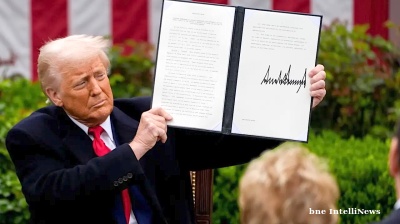The Micula brothers, two Swedish investors of Romanian origin, jubilantly announced on February 29 that that Romania will have to pay them €200mn under the final decision from the World Bank’s specialised court in a long-running dispute. The sum is equivalent to 0.13% of the country’s GDP and would put moderate pressure on the budget deficit.
However, the following day Romania’s finance ministry said that, on the contrary, Bucharest has to recover some €76mn from the investors. Both the Miculas and the government were right - but they were citing separate decisions from the World Bank’s International Centre for Settlement of Investment Disputes (ICSID) and the European Commission.
The origins of the dispute date back to 2005, when Romania repealed a preferential regime previously extended to investors in underdeveloped regions, after signing its Accession Treaty with the EU. However, Ioan and Viorel Micula claim that the regime, which included waivers for VAT, excise duties and some taxes, could not be repealed.
The brothers built up their business in the food and beverage industry in the early 90s, launching famous brands including Wonder Spring (Izvorul Minunilor) bottled water and Scandic Pop - vodka bottled in Tetrapack boxes.
They say they started their business with $20,000 worth of savings. However, their companies aggressively used fiscal credit, constantly ranking high in the list of large corporate debtors to the budget, immediately after large state-owned energy and mining companies. During a period of high inflation in the 1990s, amid unclear tax regulations and corrupt administration, their business expanded rapidly. Among their final deals with the state, the Micula brothers purchased more than a dozen hotels in seaside and mountain resorts in 2000-2002.
While successful in the early transition years, the low-cost brands developed by the Micula brothers lost market share as the purchasing power of Romanians increased after 2005. After the country signed the Accession Treaty with the European Union, not only did the Micula brothers lose their preferential regime, but the strengthening of the local currency made the market more appealing for foreign producers. In a sign of the decline of their businesses, the Micula brothers never refurbished the hotels they purchased before 2005.
In claiming the €200mn from Romanian state (€85mn principal plus interest and penalties), the Micula brothers and their firms invoked a treaty signed in 2002 between Romania and Sweden on the protection of mutual investments. The ICSID admitted the Micula brothers’ claims and ruled in December 2013 that Romania owed them €85mn - the value of the benefits they did not receive after the preferential regime was repealed, which was an unlawful move by the Romanian government, in the ICSID’s opinion.
However, Romania’s government claims it does not owe any money to the Micula brothers, despite losing an attempt to have the ICSID ruling annulled in February 2016.
The government said in a February 29 statement that rather than owing €200mn to the Micula brothers, following the ICSIS’s February 26 decision, it has to collect €85mn from them under an earlier European Commission decision.
The Romanian government claims that the sum it was ordered to pay to the Micula brothers by the ICSID in December 2013 was fully covered in 2014 by the outstanding debts of the Micula brothers’ companies to the state budget (€76mn) and by funds held in an account which had been frozen until the final EC decision on the case.
Meanwhile, the Micula brothers say the obligation set by the court has not been fulfilled and the Romanian government owes them over €200mn (principal plus penalties and interest accrued). The investors refused to accept the forgiveness of their firms’ debts to government’s budget as compensation. As a result, the value of their claims is constantly rising, having reached €200mn from €85mn initially.
Separately, the European Commission concluded in March 2015 that €85mn paid by Romania in compensation for the scheme breached EU state aid rules and therefore should be recovered, according to an EC press release issued on March 30. The beneficiaries were told to pay back all amounts already received.
However, the Micula brothers challenged the EC’s decision in court. They claim that the EC has no authority to decide on the state aid that was granted under a bilateral investment treaty preceding Romania’s EU membership. They also say that the EC has encouraged such agreements.
News

European foreign ministers hit out at Georgian ruling party
Statement condemned ongoing democratic backsliding by the ruling Georgia Dream party, which has consolidated power via crackdowns on independent media, NGOs, activists and opposition politicians.
_1752493253.jpg)
RSF urges EU action over police violence against journalists in Serbia
Press freedom watchdog Reporters Without Borders warned abuses threaten the country’s EU accession process.

US and Panama launch joint military exercises amid canal security concerns
US helicopters have arrived in Panama to begin collaborative training exercises with local security forces, as tensions mount over the strategic waterway's future amid competing US and Chinese interests.

Migration pushes EU population to record high, but CEE countries continue to shrink
Immigration outweighed the natural population decline in 2024 in just three of the newer EU member states – Croatia, Czechia and Slovenia.



